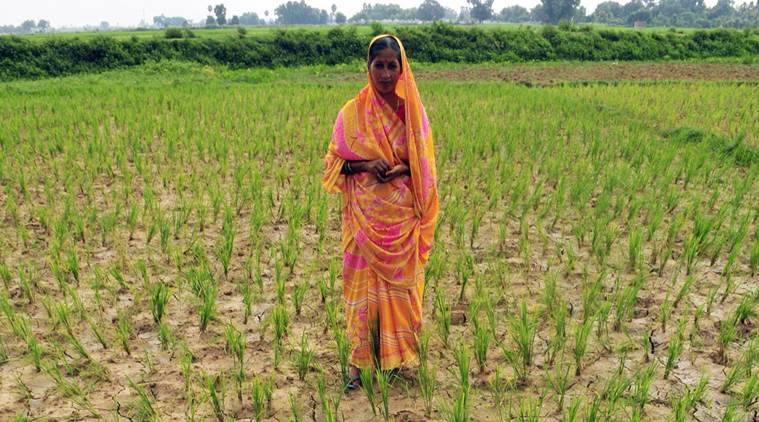[In the News] A Look at Land Rights for Women Farmers in India
Here at WEA, we recognize that women are the backbone of communities and often play a much more significant role in community care-taking and resource management (i.e. food, water, energy, etc.) than they are often recognized for. This article published by The Indian Express discusses this dilemma. Women comprise up to 65 percent of all agricultural workers, yet despite their work and contributions to both family and community, they are still not legally recognized as farmers. This is because of current land ownership laws — ownership of land by women is not something that is protected or governed under the law. This often exacerbates unequal gendered norms, such as a lack of access to bank loans, crop insurance, and other government subsidies and benefits for farmers.
As many as 87 percent of women do not own their land; only 12.7 percent of them do. There are two primary reasons for the alarmingly low number: One, land being a state subject is not governed by the constitution under a uniform law that applies equally to all citizens but rather is governed by personal religious laws, which tend to discriminate against women when it comes to land inheritance. Second, the cultural aspect of the deep-rooted biases that hinder women’s ownership of land in patriarchal societies cannot be discounted.
Providing women with access to secure land is key to incentivising the majority of India’s women farmers. This, coupled with the need to make investments to improve harvests, will result in increased productivity and improve household food security and nutrition. As has been determined from numerous studies conducted worldwide, women have a greater propensity to use their income for the needs of their households. Land-owning women’s offspring thus receive better nourishment and have better health indicators. Land-owning mothers also tend to invest in their children’s education. Ultimately, this is a win-win situation all around — for the farmer, her family and the larger ecosystem.
Another recent article published by The Daily Mail discusses this issue of a lack of land ownership recognition of women even further:
Nearly three-quarters of rural women in India depend on land for a livelihood compared to about 60 percent of rural men, as lower farm incomes push many men to the cities for jobs. Yet land titles are nearly always in the man’s name. Only about 13 percent of rural women own land, which keeps them from accessing cheap bank loans, crop insurance and other government subsidies and benefits for farmers.
The macro-level results of securing women farmers’ land tenure are clear, but consider for a moment the impact it would have at the micro-level — the wiping away of the debilitating feelings of insecurity and vulnerability for rural women. The chance of propertied women being physically abused is reduced from 49 per cent to 7 per cent due to an increase in the wife’s bargaining power. If female farmers are provided security of land tenure, they will be officially recognised as farmers and hence, will see their household bargaining power increase. Women farmers’ self-confidence and agency will slowly grow and expand outside just their household.
These articles underscore the need for investments in locally-led grassroots efforts to secure land rights for women farmers. For these reasons and more, WEA Projects over the years have focused on these very issues. For more on our work to support rural women farmers in India, visit our Projects page.
Read the full article by The Indian Press here, and the full article by The Daily Mail here.


[…] Bhagyashree elaborates, “If a man decides to buy another piece of land for farming, then the second one’s ownership may be transferred to the woman, but the primary land is always owned by men. A woman works on her husband’s land with all the energy and effort she has – it is only fair that the land should be in her name, at least partly.” Apart from patriarchy, even the law contributes to this injustice, as land is a state subject, and is not governed by the Constitution under a uniform law that applies equally to all citizens. It is governed by personal religious laws, which tend to discriminate against women when it comes to land inheritance, according to Women’s Earth Alliance. […]